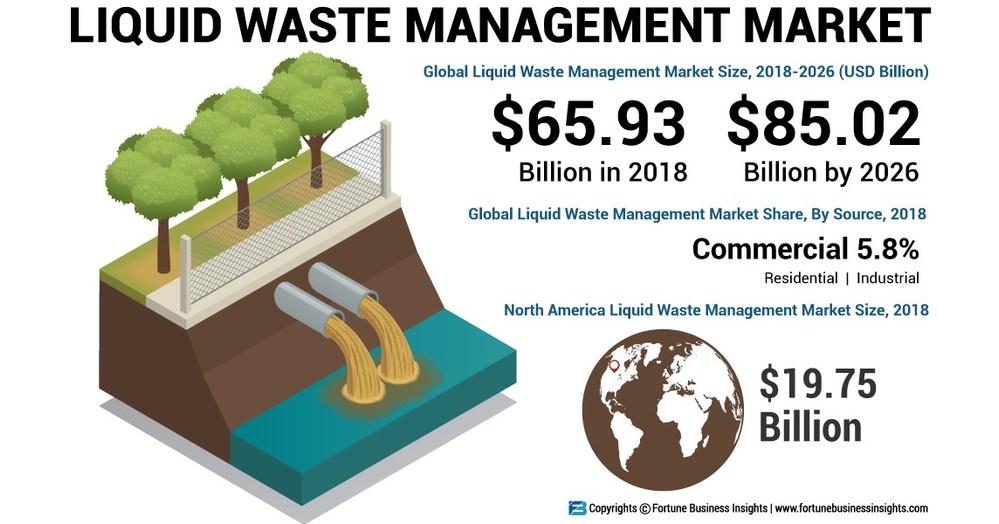The Ultimate Guide To Reclaim Waste
The Ultimate Guide To Reclaim Waste
Blog Article
The Basic Principles Of Reclaim Waste
Table of ContentsReclaim Waste - TruthsAll About Reclaim WasteThe 8-Minute Rule for Reclaim WasteSome Known Details About Reclaim Waste Reclaim Waste Fundamentals ExplainedReclaim Waste for Beginners

Never ever put unsafe compounds down sinks, commodes or stormwater drains Materials consisting of petrol, grease, oil, chemicals and herbicides, and solvents such as paint strippers must not be poured down sinks, bathrooms or stormwater drains. These materials are hard to remove in the sewer treatment procedure and create contamination troubles in our regional rivers.

Fluid waste is a term that covers a wide variety of products, there's a good reason why leaving its disposal to the professionals is recommended. Fluid waste is non-solid material that has no further use and should be dealt with and disposed of according to local, state and federal laws.
The 5-Minute Rule for Reclaim Waste
Although instances of fluid waste can consist of wastewater, fats, oils or grease, utilized oil, liquids, solids, gases or sludges and unsafe household liquids, there are some that are thought about to be extra unsafe than others when it involves the atmosphere and the health of animals and people alike. It's for this reason that each state and region have strict laws linked to liquid waste monitoring.
Liquid waste can be saved in holding storage tanks or packaged in drums, intermediate mass containers or accepted small containers before either being treated or removed via outsourced vacuum cleaner vehicles. Provided the nature of the materials, liquid waste can not go in the general waste stream and there are stringent regulations on exactly how to take care of it correctly.
(https://pxhere.com/en/photographer-me/4429814)Relying on a decision of the degree of danger, it may be required to remediate those sites. Additionally, unsafe fluid chemical wastes are regulated waste and must be tracked based on the state waste regulation. Under the chain of wardship and duties, proprietors are liable and responsible for waste produced by an organization.
Among the core applications for superabsorbent polymers (SAPs) is liquid waste solidification. liquid waste removal. SAPs are used by waste monitoring professionals to avoid possibly hazardous liquids from getting in rivers, groundwater aquifers, and various other sensitive atmospheres. Because liquids can rapidly deliver pollutants into ecological receptors and potentially contribute to geotechnical failures, fluid wastes are practically always prohibited from disposal in garbage dumps
A Biased View of Reclaim Waste
Essentially, complimentary fluids are fluids that divide from the solid part of waste product. Liquid waste can include the following: HDD mud and cuttings Land fill leachate Wastewater treatment sludge & biosolids Dug up debris Oil and gas drill cuttings Settling pond filth Hydro Excavation slurry Coal burning residuals/ash Container base sludge Concrete grinding/polishing slurry Relevant Article: For a practical instance of free liquids separating from waste product, think about the complying with circumstance: A waste administration specialist lots a dump associate sludge from a wastewater treatment plant's oygenation container, throughout a routine upkeep event.
When the chauffeur shows up at the landfill, he notices water leaching from the sludge and putting from the dump vehicle. The tons was denied by the land fill and the driver was compelled to take care of the waste as a liquid waste at an unique facility, which enhanced the disposal fees significantly.
We additionally require to be responsible for the appropriate disposal of our waste materials. It is not sufficient that we pay waste disposal companies to take care of our rubbish.
Some Ideas on Reclaim Waste You Should Know

The excellent location is a good outside space with lots of sunshine and air. Segregate your waste. Segregating your waste can start inside the home. Set apart dry and fluid waste in addition to edible waste, naturally degradable and non-biodegradable products. Constantly keep the lid on your containers to stay clear of bugs, worms, flies, and undesirable odours.
You can use old garbage can, pail, yard pot or old plastic drums. Drill 4 to five holes in the container so the air can distribute. Layer all-time low with dirt to absorb the damp waste. Start the composting procedure. Layer the garden compost with damp and completely dry waste along with dirt to preserve an equilibrium between the wet and the dry.
How Reclaim Waste can Save You Time, Stress, and Money.
Cover the compost container. Once a week, include soil in addition to the compost. To facilitate faster decay, you can also add semi composted soil to the garden compost. Keep the garden compost. If you see the smell is ending up being as well strong, add added newspapers and paper waste or add even more holes to the garden compost bin to keep the balance of the waste materials.
We also require to be liable for the proper disposal of our waste products. It is not sufficient that we pay waste disposal business to take care of our rubbish.
Our waste, our responsibility. Have you ever before questioned what takes place to your liquid waste after it's collected? Did you know that fluid waste can be recycled?
The Basic Principles Of Reclaim Waste
Segregating your waste can start inside the home. Segregate completely dry and fluid waste as well as edible waste, eco-friendly and non-biodegradable products.
You can utilize old trash can, bucket, yard pot or old plastic drums. Drill 4 to five holes in the container so the air can circulate. Layer all-time low with dirt to take in the wet waste. Beginning the composting procedure. Layer the compost with wet and dry waste in addition to dirt to keep a balance between the damp and the completely dry.
To promote faster decay, you can additionally add semi composted soil to the compost. If you see the smell is becoming also strong, include added papers and paper waste or add even more openings informative post to the compost bin to keep the balance of the waste products.
Report this page